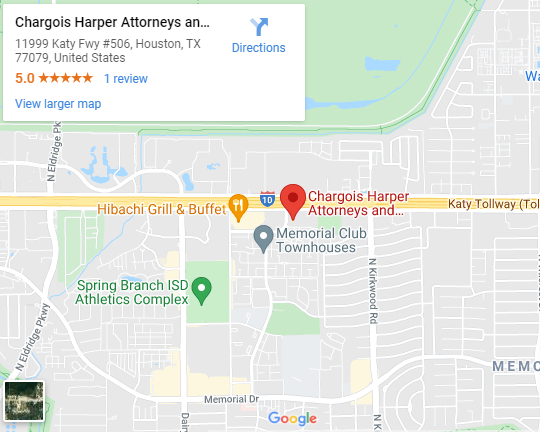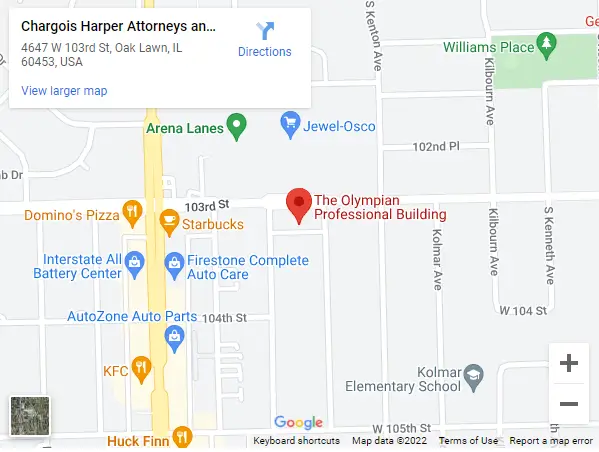Who Makes the Decision in Probate Cases?
Protect Your Family with an Estate Plan
When it comes to protecting your family with an estate plan, it is important to have the right legal guidance. Chargois Harper, a Houston estate planning attorney, can help you make the right decisions in probate cases in Houston, TX. With our experience, you can rest assured that your family will be taken care of. In this article, we will discuss who makes the decision in probate cases in Houston TX, and what is involved in the probate process in Texas.
What is Probate?
Probate is the legal process of administering the estate of a deceased person, including identifying and inventorying the deceased’s assets, paying debts and taxes, and distributing the remaining assets to beneficiaries.
What is an Estate?
An estate is defined as a person’s property, possessions, and income. It can also refer to the legal arrangements to manage and dispose of a person’s property after death.
When Does an Estate Have to Go Through Probate Court?
An estate typically has to go through probate court when the deceased person had assets in their name alone, or if they had a will. Probate court is the process of settling the estate of a deceased person. This includes identifying and inventorying the deceased person’s assets, paying debts and taxes, and distributing the remaining assets to the beneficiaries. The court will also appoint an executor or administrator to oversee the process.
What Happens to an Estate in Texas if the Person Dies without a Will?
If a person dies without a will in Texas, their estate will be distributed according to the laws of intestate succession. This means that the estate will be divided among the deceased’s closest relatives, such as their spouse, children, parents, and siblings. If the deceased had no living relatives, the estate would go to the state.
Who Makes the Decision in Probate Cases in Houston TX?
In Houston, Texas, the probate court makes the decisions in probate cases. The probate court is a specialized court that handles matters related to the administration of estates. The probate court oversees the process of distributing a deceased person’s assets to their heirs and creditors. The court also has jurisdiction over guardianship and conservatorship matters.
The probate court is presided over by a judge who is appointed by the governor of Texas. The judge is responsible for making decisions on matters related to the estate, such as approving or denying petitions for the appointment of an executor or administrator, approving or denying requests for distributions from the estate, and determining whether a will is valid. The judge also has the authority to appoint guardians and conservators and to approve or deny petitions for guardianship or conservatorship.
How Long Does Probate Take in Texas?
The length of time it takes to complete probate in Texas depends on a variety of factors, including the complexity of the estate, the number of beneficiaries, and the availability of assets. Generally, the process can take anywhere from six months to two years or more.
The probate process begins with the filing of an application for probate with the court and ends with the distribution of assets to beneficiaries. During this time, the executor must collect and inventory assets, pay debts and taxes, and handle other administrative tasks. The executor must also provide notice to creditors and beneficiaries and may need to appear in court for hearings.
What are the Benefits of Having a Probate Attorney Assist You?
When it comes to probate matters, having a probate attorney can be invaluable. Chargois Harper, a Houston estate planning attorney, can provide you with the legal guidance and assistance you need to ensure that your probate process is handled properly.
Benefits of Having a Probate Attorney:
- Knowledge of the Probate Process: A probate attorney will have a thorough understanding of the probate process and can help you navigate the complexities of the process.
- Representation in Court: A probate attorney can represent you in court and ensure that your rights are protected.
- Asset Protection: A probate attorney can help you protect your assets and ensure that they are distributed according to your wishes.
- Tax Planning: A probate attorney can help you plan for taxes and ensure that you are not overpaying.
- Estate Planning: A probate attorney can help you create an estate plan that meets your needs and ensures that your wishes are carried out.
If you are in need of assistance with a probate matter, contact Chargois Harper, a Houston estate planning attorney, today to learn more about how he can help.
How Do I Start the Probate Process in Texas?
The following steps outline how to start the probate process in Texas:
- File a petition for probate with the court in the county where the deceased person resided.
- Provide the court with a copy of the death certificate and other documents related to the estate.
- Notify all interested parties, including creditors, heirs, and beneficiaries, of the probate proceedings.
- Appoint an executor or administrator to manage the estate.
- Collect and inventory all assets belonging to the estate.
- Pay any outstanding debts or taxes owed by the estate.
- Distribute remaining assets according to the terms of the will or state law.
What is a Restricted Appeal in Texas Probate Cases?
A restricted appeal in Texas probate cases is a type of appeal that is limited to the issues that were raised in the trial court. This type of appeal is typically used when the parties agree to limit the scope of the appeal to certain issues, or when the trial court has made a ruling that is not appealable. The purpose of a restricted appeal is to ensure that the appellate court does not consider any new issues that were not raised in the trial court.
Why are Restricted Appeals Used in Texas Probate Cases?
Restricted appeals are used in Texas probate cases to ensure that the probate process is completed in a timely manner. The restricted appeal process allows a party to appeal a probate court’s decision without having to wait for the entire probate process to be completed. This helps to expedite the process and ensure that the estate is settled in a timely manner.
When Can You File a Limited Appeal?
A restricted appeal can be filed when a party is dissatisfied with the decision of a lower court or tribunal. Generally, the party must have exhausted all other available remedies before filing a restricted appeal.
What are the Repercussions of a Restricted Appeal?
The consequences of a restricted appeal are that the court will only consider the issues that were raised in the lower court. This means that any new issues or arguments that were not raised in the lower court will not be considered by the court. This can limit the ability of a party to present their case and can lead to an unfavorable outcome. Additionally, it can be difficult to appeal a decision if the issues were not properly raised in the lower court.
Houston Estate Planning Attorney
At Chargois Harper, we understand that probate cases can be complicated and overwhelming. We are dedicated to providing our clients with the highest quality legal advice and representation. Our team of experienced attorneys is well-versed in the laws and regulations governing probate cases in Houston, TX. We are committed to helping our clients make informed decisions about their estate planning needs.
When it comes to probate cases, it is important to understand who makes the decisions. In Houston, TX, the court will appoint an executor or administrator to oversee the probate process. This individual is responsible for collecting and distributing assets, paying debts, and filing taxes. The executor or administrator is also responsible for making decisions about how the estate should be distributed.
At Chargois Harper, we understand that this process can be confusing and intimidating. That’s why we are here to help. Our experienced attorneys will work with you to ensure that your wishes are respected and that your estate is handled in accordance with the law. We will also provide you with guidance on how to best protect your assets and ensure that your loved ones are taken care of after you are gone.
Contact our law office now so we can discuss your case and needs!
Visit Us:

You can count on us to protect your interests and resolve your legal concerns in Texas & Illinois.
Facing legal family disputes in Texas?
Dealing with legal disputes can be complicated and overwhelming, especially when it can affect you and your family, but you don't have to face it alone. Whether it's divorce, child support, custody and visitation, or guardianship, our Houston family law attorneys at Chargois Harper have the knowledge, experience, and compassion to help you through your family law case.
Houston Office
11999 Katy Freeway #506
Houston, TX 77079
Illinois Office
4647 W. 103rd Street, Oak Lawn Illinois 60453
Get Help From Our Illinois & Texas Attorneys
All the information on this website – www.chargoisharper.com – is published in good faith and for general information purposes only. Chargois Harper Attorneys and Counselors at Law does not make any warranties about the completeness, reliability and accuracy of this information. Any action you take upon the information you find on this website (Chargois Harper Attorneys and Counselors at Law), is strictly at your own risk. Chargois Harper Attorneys and Counselors at Law will not be liable for any losses and/or damages in connection with the use of our website.
Copyright © 2024 Chargois Harper Attorneys and Counselors at Law - All Rights Reserved. | Powered by Advantage Attorney Marketing & Cloud Solutions




